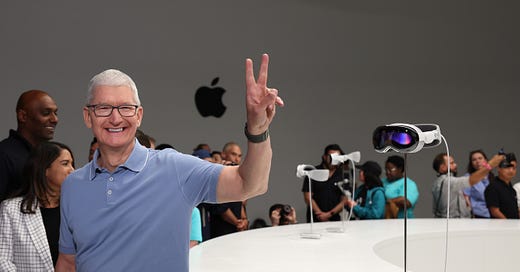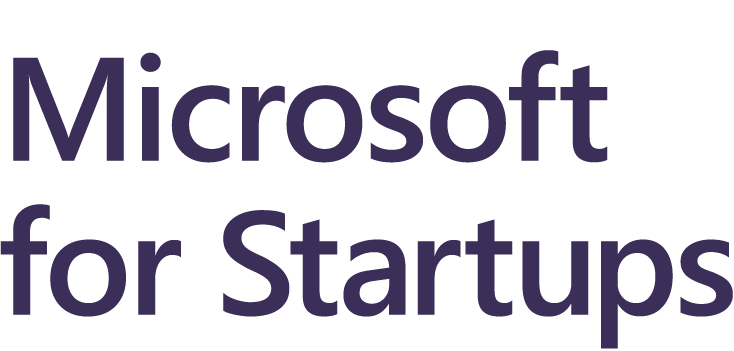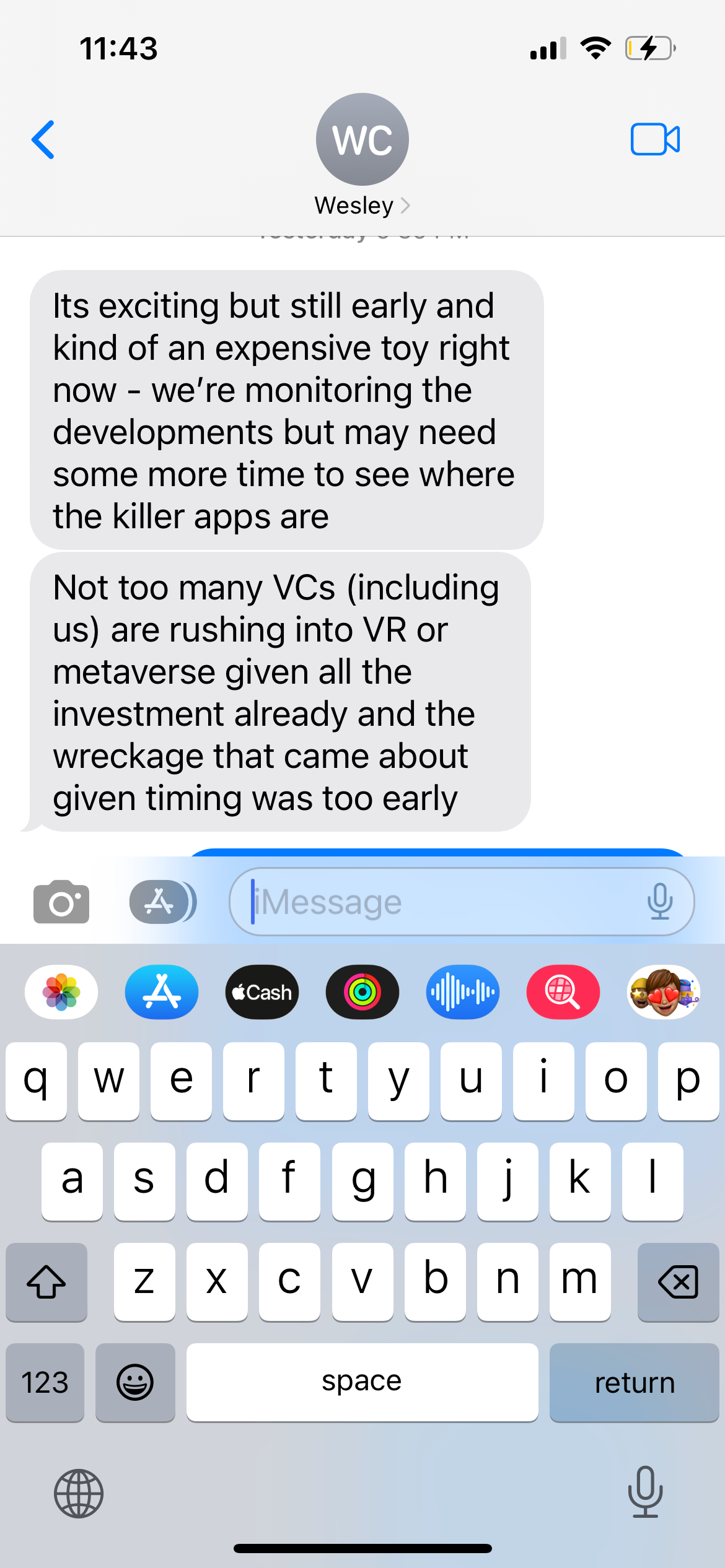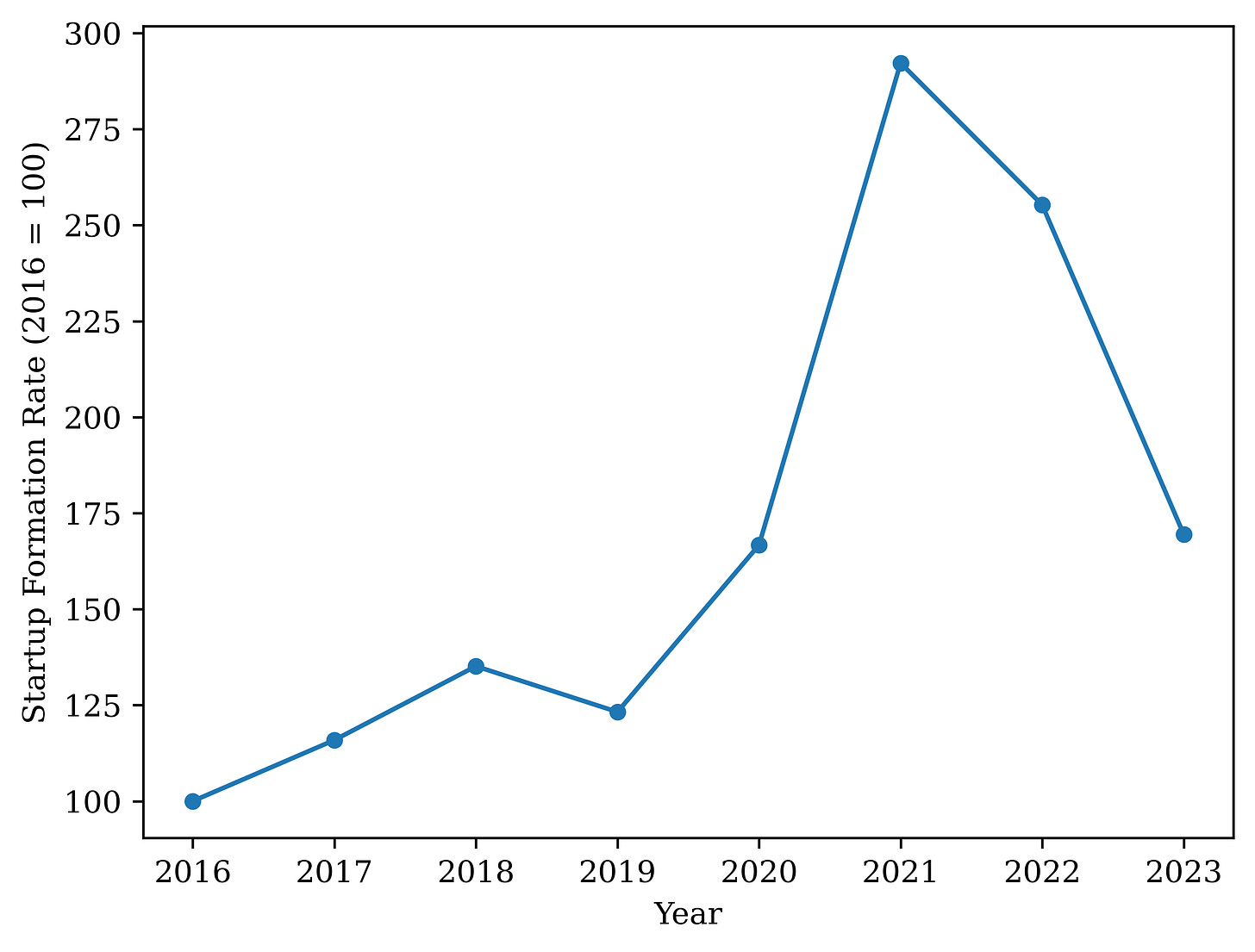Apple’s Virtual Reality Headset Arrives Amid CES Buzz...Khosla Ventures in the Spotlight...Fewer Startups Landing Seed Funding
The VC and startups news you missed this week.
Hello, and happy Friday! I’m Madeline Renbarger, and I’ll be writing about venture capital and startups for Newcomer. I wrote my first story on consumer investing week, you can check it out here.
Now, on to our look at the week’s key developments in venture investing and startup tech.
The CES electronics show was happening all week in Las Vegas, but the biggest news in consumer tech was Apple’s big Vision Pro announcement: the company will start preorders for its $3,499 “spatial computing” headset on January 19.
The release will put two powerful impulses in conflict:
Silicon Valley generally trusts Apple to have an excellent read on what consumers actually want. Apple has gotten it right so many times before — even when it seemed way behind the competition.
On the other hand, venture capitalists, startup founders, and tech obsessives are largely fatigued by virtual reality propaganda. Mark Zuckerberg already did his best to get everyone hyped about headsets — and now Zuckerberg is apparently redirecting his energy to artificial intelligence just as Apple makes its first real foray into virtual reality.
The question here is, can Apple set its own timeline just like it did with phones, watches, and wireless earbuds? Or is this more like Apple’s car project — a way-too-slow effort by Apple to keep up with technology currants that are already passing it by.
Whether you’re a lean startup experimenting with AI or a robust team training your own models, Microsoft for Startups Founders Hub offers free resources for all skill levels.
Founders Hub connects you to the AI resources your startup needs to succeed, including:
Up to $150K in Azure credits
Access to GPT-4 and GPT 3.5 Turbo through Azure OpenAI Service
Unlimited 1:1 meetings with Microsoft AI experts to help solve your immediate challenges
Founders Hub is open to all—sign up in minutes with no funding required.
For Apple to succeed it will likely need to replicate the success of the iPhone app store, convincing venture capitalists to pour billions of dollars into startups building for the platform.
So far there isn’t much evidence that’s happening. Silicon Valley is all-in on artificial intelligence (an area where Apple already seems woefully behind.)
FPV’s Wesley Chan captured the VC sentiment toward the Apple Vision Pro in a text exchange:
VR has become one of those sectors where mass adoption is always just around the corner.
Global VC funding to metaverse and VR/AR startups fell from $5.7 billion in 2022 to only $1.9 billion in 2023, according to Crunchbase.
A classic example is the AR headset company Magic Leap, which was founded back in the ancient times of 2010. The startup raised billions in funding over 10 years, then raised another $500 million in funding at a $2 billion valuation in 2021, and then yet another $450 million in debt and equity from the Saudi Arabian sovereign wealth fund for a majority stake at the end of 2022. There hasn’t been much chatter about them since.
Cheaper VR hardware debuted at CES this week, including the Chinese AR startup Xreal’s AR glasses, but the buzzier tech was definitely AI wearables, like new startup Rabbit’s $199 AI device.
Even those startups are not getting a free pass in this market just because they have AI in their name—Humane, the $699 AI pin company, just went through a round of layoffs this week ahead of their scheduled March shipments.
Chan wasn’t sold on AI wearables either, saying they “probably need three or four more versions to work out the user interface kinks” before people actually started buying them at scale.
“I’m an early adopter on most things and have had the first iPhone since it came out more than a decade ago, but I’m not an early adopter on this,” he said.
Of course, a third-party app store didn’t launch on the first iPhone. These things can take time. The first power users of the Vision Pro will be people who can get a lot of value out of the device even at the high pricetag.
Edtech investor Katelyn Donnelly, who has been bullish on VR for professional training and learning, argued that the Apple Vision Pro will be embraced by companies looking to train their employees.
“In enterprise training, Apple Vision Pro pricing is reasonable because it can cut down on expensive live instruction time and drive efficiency,” she said. “Having a higher quality computing platform is likely to increase the efficacy of all the training modules as they can more closely mimic real-life.”
We’re going to start running regular updates on venture capital funds when they’re in the news. You might remember that we dug into five VCs in August. We’re going to start writing new entries when a venture capital firm is in the news and then paid subscribers will get access to a running database of all our VC directory entries.
The VC Directory: Khosla Ventures
A big shakeup in the VC world happened Tuesday, with the news that the former Founders Fund general partner Keith Rabois is heading back to Khosla Ventures, as first reported by The Information.
While he was at Founders Fund, Rabois and the Khosla Ventures team invested in several deals together, including Ultima Genomics, OpenStore (which Rabois founded,) and Traba.
A spokeperson for Founders Fund said in a statement about Rabois’ move that “Khosla seems happy and we’re happy.” When asked about hiring a replacement for Rabois, and if the firms would continue to work together, the spokesperson told Newcomer, “we’re always open to hiring the right people and assume there will continue to be investment overlap,” but wouldn’t comment on any internal moves at the firm.
Founding partner Vinod Khosla has had quite the run in recent years, largely thanks to his early investment in OpenAI.
Other founding investing partners include Samir Kaul, who led deals in Impossible Foods and Varda, and David Weiden, who backed cybersecurity startup Okta. The firm’s other investing managing director, Sven Strohband, made its early investment in GitLab.
Khosla Ventures is now in the VC Directory. We’re highlighting some of the firm’s most important general partners, funds, and prominent deals that are worth knowing. Major credit to our intern Lauren Koong for putting this directory and initial draft together.
How much
Assets Under Management: $15 billion
Khosla Ventures officially closed $3.1 billion in early January in the latest set of funds.
Active Funds
Fund VIII: $1.6 billion
Fund VIII Seed: $500 million
Opportunity Fund II: $1 billion
Who
Investing managing directors: Vinod Khosla, Samir Kaul, David Weiden, Sven Strohband, Keith Rabois
Investing Partners: Alex Morgan, Nikita Shamgunov, Rajesh Swaminathan, Alice Brooks, Kanu Gulati, Sandhya Venkatachalam, Jessy Rivest, Jon Chu, and Adina Tecklu
Notable portfolio companies
Recent
Rabbit: Khosla Ventures led the AI voice input device’s $30 million Series A round in late 2023.
Moonhub: Khosla Ventures co-led a $10 million seed round into the AI-powered recruitment startup Moonhub in 2023, alongside GV.
Bionot Labs: The robotic drug delivery company raised over $43 million in a Series B round led by Khosla Ventures.
OpenStore: Khosla Ventures led a $30 million Series A for Keith Rabois’ OpenStore in 2021.
Varda: Khosla Ventures co-led the space factory startup Varda’s $42 million Series A round in 2021, alongside Caffeinated Capital.
Historic
OpenAI: Khosla Ventures put a $50 million check into OpenAI in 2019.
GitLab: Khosla Ventures led Gitlab’s $4 million Series A in 2015. In total, they invested $12.75 million in GitLab, and returned over 150X.
Guardant Health: In 2014, Khosla Ventures led a $30 million Series B for Guardant Health.
Stripe: Khosla Ventures invested in Stripe’s $80 million Series C round in 2014, with Founders Fund (via Keith Rabois) leading the round.
DoorDash: Khosla Ventures led DoorDash’s $2.4 million seed round in 2013.
Nutanix: In 2011, Khosla Ventures led Nutanix’s $25 million Series B.
Impossible Foods: Khosla was the first investor in Impossible Foods, leading its $6 million Series A round back in 2011.
Block: Khosla led a $10 million Series A for Jack Dorsey’s Block, then called Square, in 2009.
We’ve often taken a data-focused approach to covering the venture capital industry here at Newcomer. Going forward, we’re hoping to highlight some interesting charts on the VC industry that capture curious market trends.
One Big Chart: The Decline in Total Startups
This week, the data team at AngelList sent us some exclusive data around seed funding. Throughout the venture downturn, some investors have tried to predict when seed valuations will fall, just like their Series A, B, and growth stage counterparts. But seed round size has been surprisingly consistent.
While seed prices held strong last year, AngelList has seen a dramatic decline in new startup creation, said Abe Othman, AngelList’s head of data science.
According to AngelList’s internal data, which was shared with Newcomer, startup formation is down 40 percent since 2021.
It’s not entirely clear why, but Othman has a working theory: inflation.
“As inflation drives up startup operational costs, founders need to raise larger seed rounds,” said Othman, to cover pricey engineer salaries, especially for AI-forward startups.
As the cost to operate an early stage startup rises, the competition to get funding gets a lot more fierce, he argues.
Another explanation could be that would-be founders have stopped looking for seed funding simply because there’s less funding out there. Even early-stage investors have slowed down on writing checks into new startups, and some are choosing to double down on their existing portfolio companies instead of making as many new bets.
Furthermore, the category of startup often impacts the cost more than inflation: take the amount of cash many AI startups need just to cover compute costs, let alone talent. With a boom in early stage AI funding, the rounds that do get done could just need to be more expensive, leaving little available funding for everyone else.
Other tech and startup news we followed this week:
Carta is no longer facilitating secondary trading, according to CEO Henry Ward, after the CEO of Linear called Carta out on LinkedIn and X for using information about Linear’s investors to sell its shares without his consent. Read more in TechCrunch.
OpenAI’s GPT Store is now open, akin to an app store for the AI age. The Information broke the story here.
The Wall Street Journal’s bombshell report about Elon Musk’s drug use was a must read. The reporting indicated he’s been using multiple illegal drugs, including cocaine and LSD, and his friends and business partners are concerned. It could also threaten his government contracts with SpaceX. Read the report here.
OpenAI CEO Sam Altman married his longtime partner Oliver Mulherin, according to photos posted to Altman’s Instagram. Congrats to the happy couple!
— With reporting from Lauren Koong








